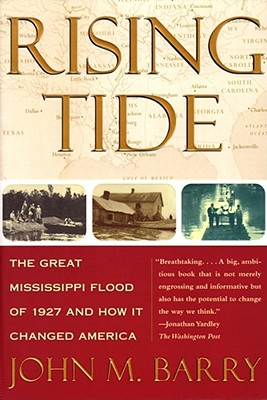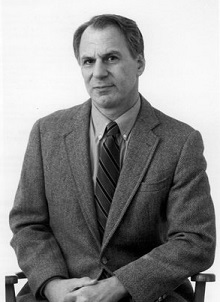

 Simon & Schuster
Simon & Schuster
Rising Tide: The Great Mississippi Flood of 1927 and How It Changed America


Key Metrics
- John M Barry
- Simon & Schuster
- Paperback
- 9780684840024
- 9.26 X 6.24 X 1.35 inches
- 1.36 pounds
- History > United States - 20th Century
- English
 Secure Transaction
Secure TransactionBook Description
A New York Times Notable Book of the Year, winner of the Southern Book Critics Circle Award and the Lillian Smith Award.
Author Bio
John M. Barry is a prize-winning and New York Times best-selling author whose books have won multiple awards. The National Academies of Sciences named his 2004 book The Great Influenza: The story of the deadliest pandemic in history, a study of the 1918 pandemic, the year's outstanding book on science or medicine. His earlier book Rising Tide: The Great Mississippi Flood of 1927 and How It Changed America, won the Francis Parkman Prize of the Society of American Historians for the year's best book of American history and in 2005 the New York Public Library named it one of the 50 best books in the preceding 50 years, including fiction, nonfiction, and poetry. His books have also been embraced by experts in applicable fields: in 2006 he became the only non-scientist ever to give the National Academies Abel Wolman Distinguished Lecture, a lecture which honors contributions to water-related science, and he was the only non-scientist on a federal government Infectious Disease Board of Experts. He has served on numerous boards, including ones at M.I.T's Center for Engineering Systems Fundamentals, the Johns Hopkins Bloomberg School of Public Health, and the Society of American Historians. His latest book is Roger Williams and The Creation of the American Soul: Church, State, and the Birth of Liberty, a finalist for the Los Angeles Times Book Prize and winner of the New England Society Book Award.
His books have involved him in two areas of public policy. In 2004, he began working with the National Academies and several federal government entities on influenza preparedness and response, and he was a member of the original team which developed plans for mitigating a pandemic by using "non-pharmaceutical interventions"-- i.e., public health measures to take before a vaccine becomes available. Both the Bush and Obama administrations have sought his advice on influenza preparedness and response, and he continues his activity in this area.
He has been equally active in water issues. After Hurricane Katrina, the Louisiana congressional delegation asked him to chair a bipartisan working group on flood protection, and he served on the Southeast Louisiana Flood Protection Authority East, overseeing levee districts in metropolitan New Orleans, from its founding in 2007 until October 2013, as well as on the Louisiana Coastal Protection and Restoration Authority, which is responsible for the statewide hurricane protection. Barry has worked with state, federal, United Nations, and World Health Organization officials on influenza, water-related disasters, and risk communication.
His articles have appeared in such scientific journals as Nature and Journal of Infectious Disease as well as in lay publications ranging from Sports Illustrated to Politico, The New York Times, The Washington Post, Fortune, Time, Newsweek, and Esquire. A frequent guest on every broadcast network in the US, he has appeared on such shows as NBC's Meet the Press, ABC's World News, and NPR's All Things Considered, and on such foreign media as the BBC and Al Jazeera.
Before becoming a writer, Barry coached football at the high school, small college, and major college levels. Currently Distinguished Scholar at Tulane's Bywater Institute and a professor at the Tulane School of Public Health and Tropical Medicine, he lives in New Orleans.
Videos
No Videos
Community reviews
Write a ReviewNo Community reviews